Saturday, January 6,2024. Annette’s News Roundup.
I think the Roundup makes people feel not so alone.
To read an article excerpted in this Roundup, click on its blue title. Each “blue” article is hyperlinked so you can read the whole article.
Please feel free to share.
Invite at least one other person to subscribe today! https://buttondown.email/AnnettesNewsRoundup
____________________________
It is the 3rd anniversary of Trump’s January 6th Insurrection. We commemorate perhaps the saddest day in American History today.
The President kicked off his 2024 campaign with a fiery speech on Democracy, Trump and January 6th, delivered in Valley Forge yesterday.
“We must be clear,” Mr. Biden said. “Democracy is on the ballot. Your freedom is on the ballot.”
Watch the President here, beginning at 2:40.👇 Post it wherever you can.
____________________________
Joe is always busy.
160,000 new jobs would have been considered good. Instead this happened.
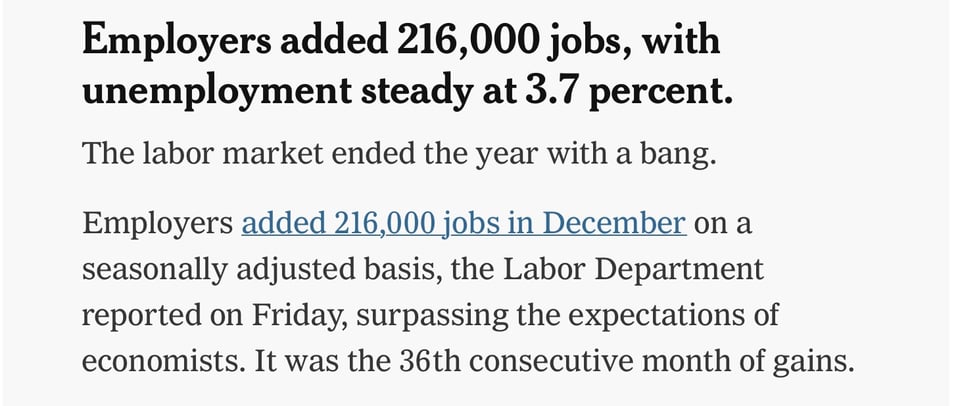
(Source. New York Times).
You can’t be pro-insurrection and pro-America.
— President Biden (@POTUS) January 6, 2024
____________________________
Almost too ironic to post. Ackman’s wife seems to have plagiarized. Oh my.

From the New York Times DealBook. - Bill Ackman’s wife is accused of plagiarism by Business Insider.The publication said that Neri Oxman, a prominent academic and architect who formerly taught at M.I.T., had failed to use quotation marks around several passages in her 2010 doctoral dissertation that were taken from other papers, though she cited her sources. Oxman posted on X that she was checking the accusations, apologized and would request any necessary corrections; Ackman, who was a leading advocate for ousting Claudine Gay as Harvard’s president over plagiarism accusations, posted in support of his wife.
____________________________
Capitol Police Officer Harry Dunn is running for Congress from Maryland.
On January 6th, I defended our democracy from insurrectionists as a Capitol Police Officer. After, President Biden honored me with the Presidential Citizens Medal.
— Harry Dunn (@libradunn) January 5, 2024
Today, I’m running for Congress to stop Trump's MAGA extremists & ensure it never happens again.
Join me:… pic.twitter.com/5G3rd90O45
____________________________
We will learn what this means. For now, we don’t know.
Wayne LaPierre announces resignation as leader of the NRA days ahead of civil trial.
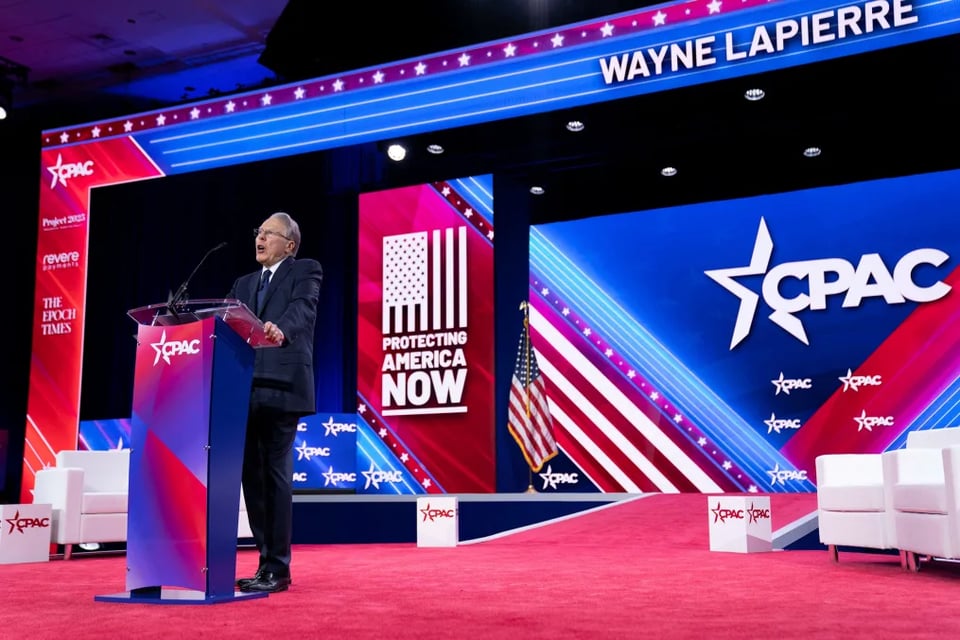
Wayne LaPierre, the leader of the National Rifle Association of America who served for decades as a fierce protector of the Second Amendment, advocating for firearms owners and manufacturers, announced his resignation on Friday – days before his civil trial is set to begin.
LaPierre is stepping down as executive vice president and chief executive officer, effective January 31, the NRA said in a statement.
Andrew Arulanandam, an NRA executive and head of general operations, will become the interim CEO and executive vice president of the organization, the NRA said on its website.
“With pride in all that we have accomplished, I am announcing my resignation from the NRA,” LaPierre said in a statement released by the group. “I’ve been a card-carrying member of this organization for most of my adult life, and I will never stop supporting the NRA and its fight to defend Second Amendment freedom. My passion for our cause burns as deeply as ever.”
LaPierre cited health reasons, according to the NRA. Its president, Charles Cotton, accepted LaPierre’s resignation on Friday, the group said.
“Wayne is a towering figure in the fight for constitutional freedom, but one of his other talents is equally important: he built an organization that is bigger than him,” read a statement from Cotton.
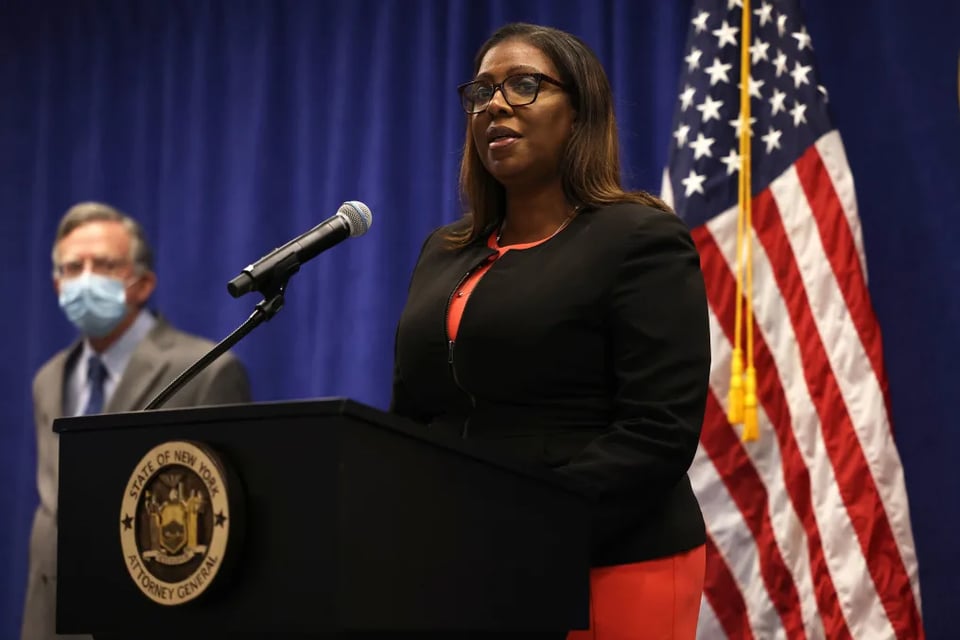
New York Attorney General Letitia James in 2020 filed a lawsuit to dissolve the NRA, claiming the organization violated laws for non-profit groups, committed tax fraud and took millions for personal use.
A spokesperson for the attorney general’s office confirmed to CNN the case will still go to trial in the New York Supreme Court on Monday, LaPierre attended jury selection this week for the trial, which is expected to last between six and eight weeks.
It will take place after several efforts by the NRA to dismantle the Manhattan court case by moving it out of state or filing appeals alleging the case is politically motivated by James’ office. Judge Joel Cohen, who is presiding over the case, blocked James’ attempt to dissolve the NRA in March 2022 but allowed the lawsuit to proceed.
The suit names LaPierre, General Counsel and Secretary John Frazer, former Chief Financial Officer Wilson “Woody” Phillips and former Chief of Staff and Executive Director of General Operations Josh Powell.
For nearly three decades, Wayne LaPierre has served as the chief executive officer of the NRA and has exploited the organization for his financial benefit, and the benefit of a close circle of NRA staff, board members, and vendors,” the complaint said.
LaPierre ‘unlawfully profited,’ suit says
The lawsuit accuses the NRA of violating multiple laws including false reporting of annual filings with the IRS and New York’s charities bureau, improperly documenting expenses, improper wage and income tax reporting and excessively paying people for work for which they were not qualified.
Many of the charges stem from the NRA’s status as a charitable organization, which has strict state and federal rules governing spending.
The suit also asks the court to order LaPierre and other executives named in the suit to make full restitution for funds from which they “unlawfully profited” and salaries they earned while employees; to remove LaPierre and Frazer from the NRA’s leadership; and ensure none of the executives can ever serve on the board of any charity in New York.
James’ office confirmed it was investigating the NRA in 2019, after reporting by The Trace alleged that a small group of executives, contractors and vendors affiliated with the group extracted hundreds of millions from the non-profit’s budget.
The NRA filed a countersuit in federal court alleging that the attorney general is hampering the organization’s right to free speech in a manner that “threatens to destabilize the NRA and chill the speech of the NRA, its members, and other constituents.”
In a statement to CNN, NRA President Carolyn Meadows called the New York suit a “baseless premeditated attack on our organization and the Second Amendment freedoms it fights to defend. It’s a transparent attempt to score political points and attack the leading voice in opposition to the leftist agenda.”
In the lawsuit, James alleged the current and former NRA leadership, “instituted a culture of self-dealing mismanagement” benefiting themselves, family, friends and favored vendors, leading the organization to lose more than $63 million in three years, according to previous CNN reporting.
James previously told CNN claims that the lawsuit against the NRA is political are false.
When asked why she is seeking to dissolve the organization instead of focusing on leadership, the attorney general said the misuse of funds wasn’t just an issue of top leaders, but instead a failure throughout the organization to stop the “looting of the charitable assets.”
Following the announcement of LaPierre’s departure, James said Friday in a statement on X: “The end of the Wayne LaPierre era at the NRA is an important victory in our case. LaPierre’s resignation validates our claims against him, but it will not insulate him from accountability. We look forward to presenting our case in court.”
The NRA’s troubles
The NRA filed for bankruptcy in 2021 after a long leadership fight that saw the departure of its longtime chief lobbyist, Christopher Cox, in June 2019. The organization’s troubles have coincided with a decline in its political spending in the past two years.
For its first 100 years, the NRA was largely non-partisan and supportive of some gun control measures. In the 1970s, however, the group began to lobby against federal firearm restrictions, making strong allies among political conservatives, particularly within the Republican Party.
Though institutionally hindered, the NRA’s strength endures within the GOP, whose leaders remain almost wholly aligned with the group’s positions.
In a statement to CNN on Friday, Brady, a leading national gun violence prevention organization, said the NRA is “on the ropes now more than ever” after LaPierre announced his resignation.
“They are losing their leader, they’re under investigation and headed to trial,” said Brady President Kris Brown. “Brady and Team ENOUGH youth advocates, survivors, and leaders are to be thanked for building the pressure that created the cracks in the NRA’s foundation.”
The president of Everytown for Gun Safety, another national gun violence prevention non-profit group, said the NRA “has been in a doom spiral for years” and LaPierre’s resignation “is yet another massive setback for an organization that’s already at rock bottom.”
“LaPierre’s legacy will be one of corruption, mismanagement, and the untold destruction gun violence has brought to every American community,” said John Feinblatt. “The NRA’s declining membership, finances, and political power spell disaster for the organization heading into the 2024 elections.”
March for Our Lives, a student-led organization, said in a statement Friday that the NRA “was an untouchable and seemingly all-powerful political juggernaut” when the gun control advocacy group was founded after the Marjory Stoneman Douglas High School shooting in Parkland, Florida, in 2018.
“However, all it took was some meddling kids and a whole lot of determination to take down one of the largest and most powerful lobbying machines in American history,” March for Our Lives said in a statement.
“From demanding legal action, to campaigns that highlighted their illegal and immoral activities, March For Our Lives took on the NRA time and again, and since we marched in 2018, they’ve lost over a million members and nearly half their annual revenue. Now, the NRA is a shell of what it once was,” the statement continued.
March for Our Lives reviewed LaPierre’s finances and wrote a letter in November 2018 to the New York attorney general, reporting “potentially illegal” activity before the office launched its investigation the following year. The letter included information the group said “suggests a long-standing pattern of significant governance lapses at the NRA.”
Stephen Gutowski, a firearms reporter at TheReload.com and CNN contributor, said Friday of LaPierre’s resignation: “This is huge.”
“I mean, Wayne LaPierre was a staple of the NRA and the gun debate for the last several decades. He is the leader of the gun rights movement in this country forever,” Gutowski said. “The guy who was the guy is gone now.” (CNN).
____________________________
What will the Supreme Court decide on the 14th Amendment, Paragraph 3 of the Constitution?
Supreme Court to Decide Whether Trump Is Eligible for Colorado Ballot.
The Colorado Supreme Court ruled last month that the former president could not appear on the state’s Republican primary ballot because he had engaged in insurrection.
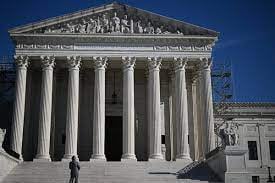
The Supreme Court agreed on Friday to decide whether former President Donald J. Trump is eligible for Colorado’s Republican primary ballot, thrusting the justices into a pivotal role that could alter the course of this year’s presidential election.
The sweep of the court’s ruling is likely to be broad. It will probably resolve not only whether Mr. Trump may appear on the Colorado primary ballot after the state’s top court declared that he had engaged in insurrection in his efforts to subvert the 2020 election, but it will most likely also determine his eligibility to run in the general election and to hold office at all.
Not since Bush v. Gore, the 2000 decision that handed the presidency to George W. Bush, has the Supreme Court taken such a central role in an election for the nation’s highest office.
The case will be argued on Feb. 8, and the court will probably decide it quickly. The Colorado Republican Party had urged the justices to rule by March 5, when many states, including Colorado, hold primaries.
The number of challenges to Mr. Trump’s eligibility across the country can only have added pressure on the court to hear the Colorado case, as they underscored the need for a nationwide resolution of the question.
The case is one of several involving or affecting Mr. Trump on the court’s docket or on the horizon. An appeals court will hear arguments on Tuesday on whether he has absolute immunity from prosecution, and the losing side is all but certain to appeal. And the court has already said that it will rule on the scope of a central charge in the federal election-interference case in a decision expected by June.
Mr. Trump asked the Supreme Court to intervene after Colorado’s top court disqualified him from the ballot last month. That decision is on hold while the justices consider the matter.
Jena Griswold, Colorado’s secretary of state, pressed the Supreme Court to act fast.
“Coloradans, and the American people, deserve clarity on whether someone who engaged in insurrection may run for the country’s highest office,” she said in a statement.
Mr. Trump acknowledged the court’s decision to hear the case at a rally Friday in Sioux Center, Iowa, saying he hoped the justices would fairly interpret the law. “All I want is fair; I fought really hard to get three very, very good people in,” he said, referring to his appointees. He added, “And I just hope that they’re going to be fair because, you know, the other side plays the ref.”
The case turns on the meaning of Section 3 of the 14th Amendment, ratified after the Civil War, which bars those who had taken an oath “to support the Constitution of the United States” from holding office if they then “shall have engaged in insurrection or rebellion against the same, or given aid or comfort to the enemies thereof.”
Congress can remove the prohibition, the provision says, but only by a two-thirds vote in each chamber.
Though Section 3 addressed the aftermath of the Civil War, it was written in general terms and, most scholars say, continues to have force.
A Colorado trial judge ruled that Mr. Trump had engaged in insurrection but accepted his argument that Section 3 did not apply to him, reasoning that Mr. Trump had not sworn the right kind of oath and that the provision did not apply to the office of the presidency.
The Colorado Supreme Court affirmed the first part of the ruling — that Mr. Trump had engaged in an insurrection, including by setting out to overturn the result of the 2020 presidential election; trying to alter vote counts; encouraging bogus slates of competing electors; pressuring the vice president to violate the Constitution; and calling for the march on the Capitol.
But the majority reversed the part of the decision that said Section 3 did not apply to the presidency.
“President Trump asks us to hold,” the majority wrote in an unsigned opinion, “that Section 3 disqualifies every oath-breaking insurrectionist except the most powerful one and that it bars oath breakers from virtually every office, both state and federal, except the highest one in the land. Both results are inconsistent with the plain language and history of Section 3.”
The State Supreme Court addressed several other issues. Congress does not need to act before courts may disqualify candidates, it said. Mr. Trump’s eligibility is not the sort of political question that is outside the competence of courts. The House’s Jan. 6 report was properly admitted into evidence. Mr. Trump’s speech that day was not protected by the First Amendment.
The court added that states are authorized under the Constitution to assess the qualifications of presidential candidates. “Were we to adopt President Trump’s view,” the majority wrote, “Colorado could not exclude from the ballot even candidates who plainly do not satisfy the age, residency and citizenship requirements” of the Constitution.
An election official in Maine last month adopted much of the Colorado Supreme Court’s reasoning in barring Mr. Trump from the primary ballot there. He has appealed that ruling to a state court in Maine.
In urging the Supreme Court to hear the Colorado case and to resolve it quickly, Mr. Trump’s lawyers cited the ruling in Maine.
“The Colorado Supreme Court decision would unconstitutionally disenfranchise millions of voters in Colorado and likely be used as a template to disenfranchise tens of millions of voters nationwide,” the lawyers wrote. “Indeed, the Maine secretary of state, in an administrative proceeding, has already used the Colorado proceedings as justification for unlawfully striking President Trump from that state’s ballot.”
The case, Trump v. Anderson, No. 23-719, presents an unusually large number of intricate and overlapping legal issues, and the parties disagreed about which ones the court should address. The court’s order granting review did not specify which issues it agreed to hear. Unless it clarifies matters in a later order, the briefs and arguments will most likely be sprawling.
Mr. Trump’s opening brief on the merits is due on Jan. 18, and lawyers for the six voters who prevailed in the Colorado Supreme Court must respond by Jan. 31.
In their response to Mr. Trump’s petition, the voters’ lawyers said they counted “at least seven discrete legal and factual issues” pressed by Mr. Trump, asking the justices to limit their review to five of them.
The questions the justices will confront include whether the events culminating in the assault on the Capitol on Jan. 6 were an insurrection and whether Mr. Trump engaged in them. He disputed both points in his petition.
“‘Insurrection’ as understood at the time of the passage of the 14th Amendment meant the taking up of arms and waging war upon the United States,” the petition said, noting that the amendment had been adopted after “the United States had undergone a horrific civil war in which over 600,000 combatants died, and the very survival of the nation was in doubt.”
The voters’ brief took the opposite view. “Trump’s intentionally mobilizing, inciting and encouraging an armed mob to attack the United States Capitol on Jan. 6 satisfies the legal definition of ‘engaging in insurrection,’” the brief said.
The justices can decide the case without addressing either issue. They could, for instance, say that the matter is a political question not fit for judicial resolution, that courts are not free to act unless Congress enacts legislation or that Section 3 does not apply to the presidency.
Mr. Trump’s lawyers argued that Section 3 at most disqualified people subject to it from holding office — not from seeking it. If he were elected, the petition said, Congress could remove his disqualification before his term began.
The voters’ brief said that analysis defied logic. “Because Trump is not qualified to hold the office of president,” the brief said, “he is not a ‘qualified candidate’ under the Colorado Election Code.” (New York Times).
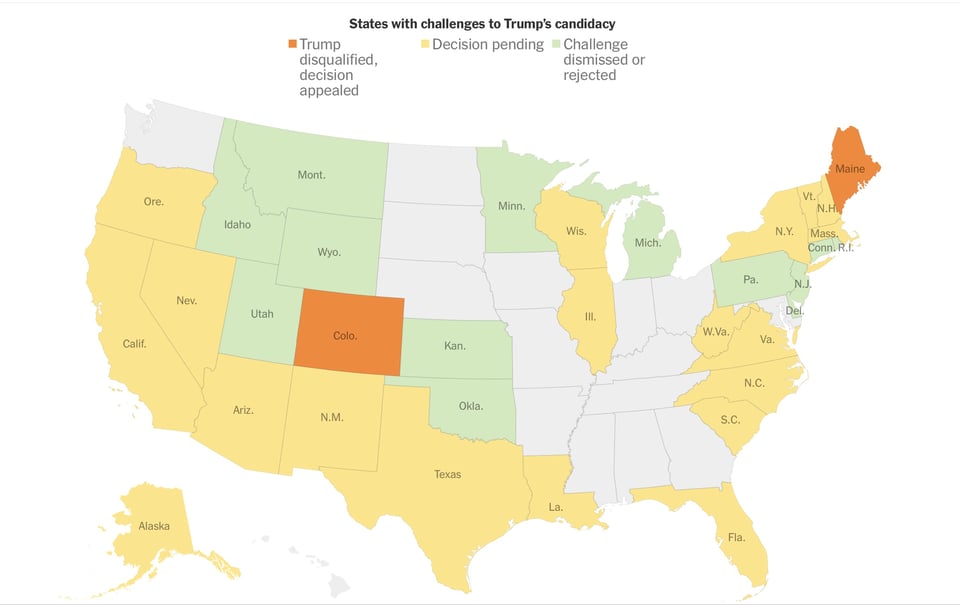
____________________________
Have a good weekend, everyone.
I will see you on Tuesday.
I plan to play in the snow, even if there is only one inch.

____________________________